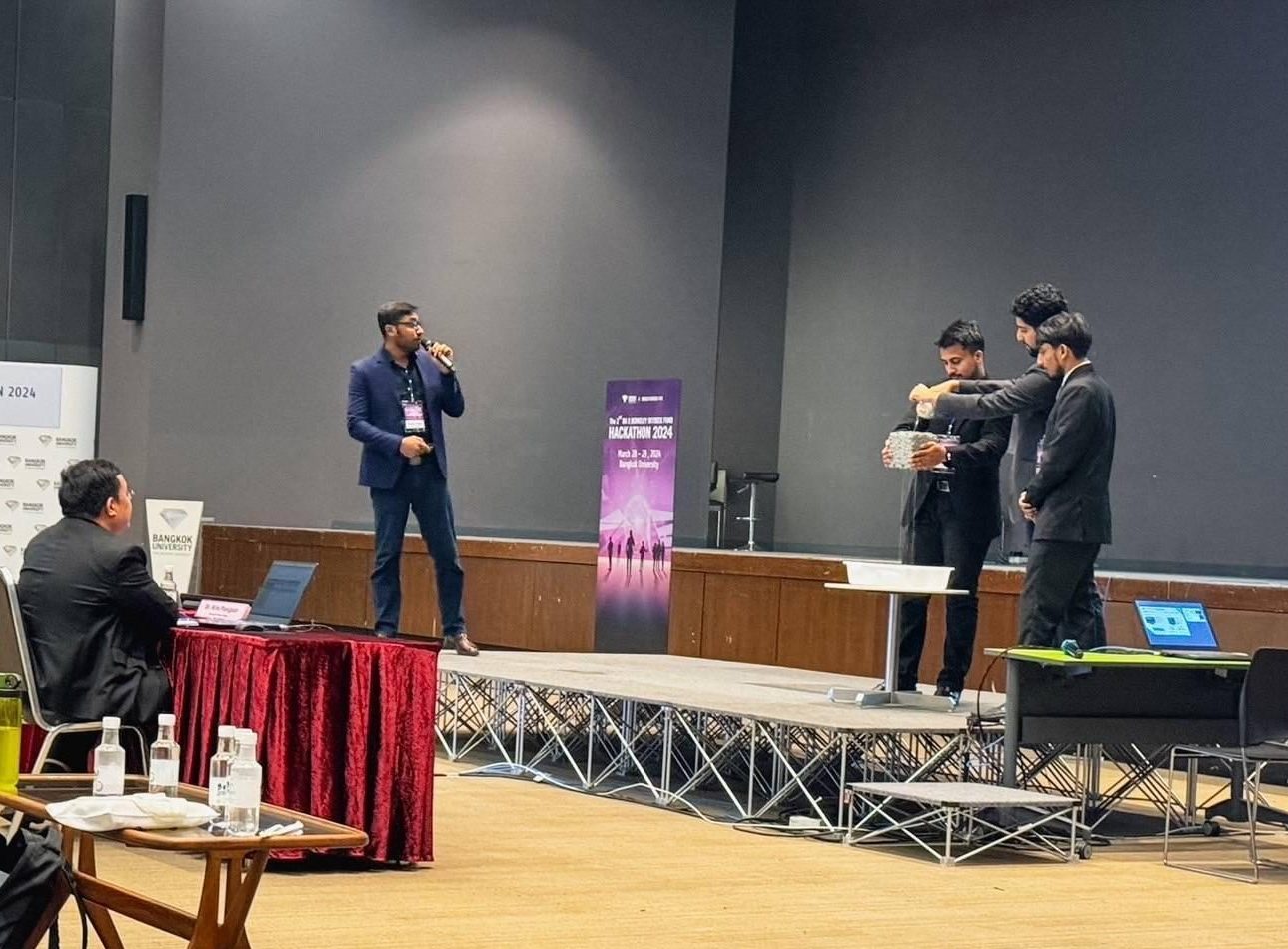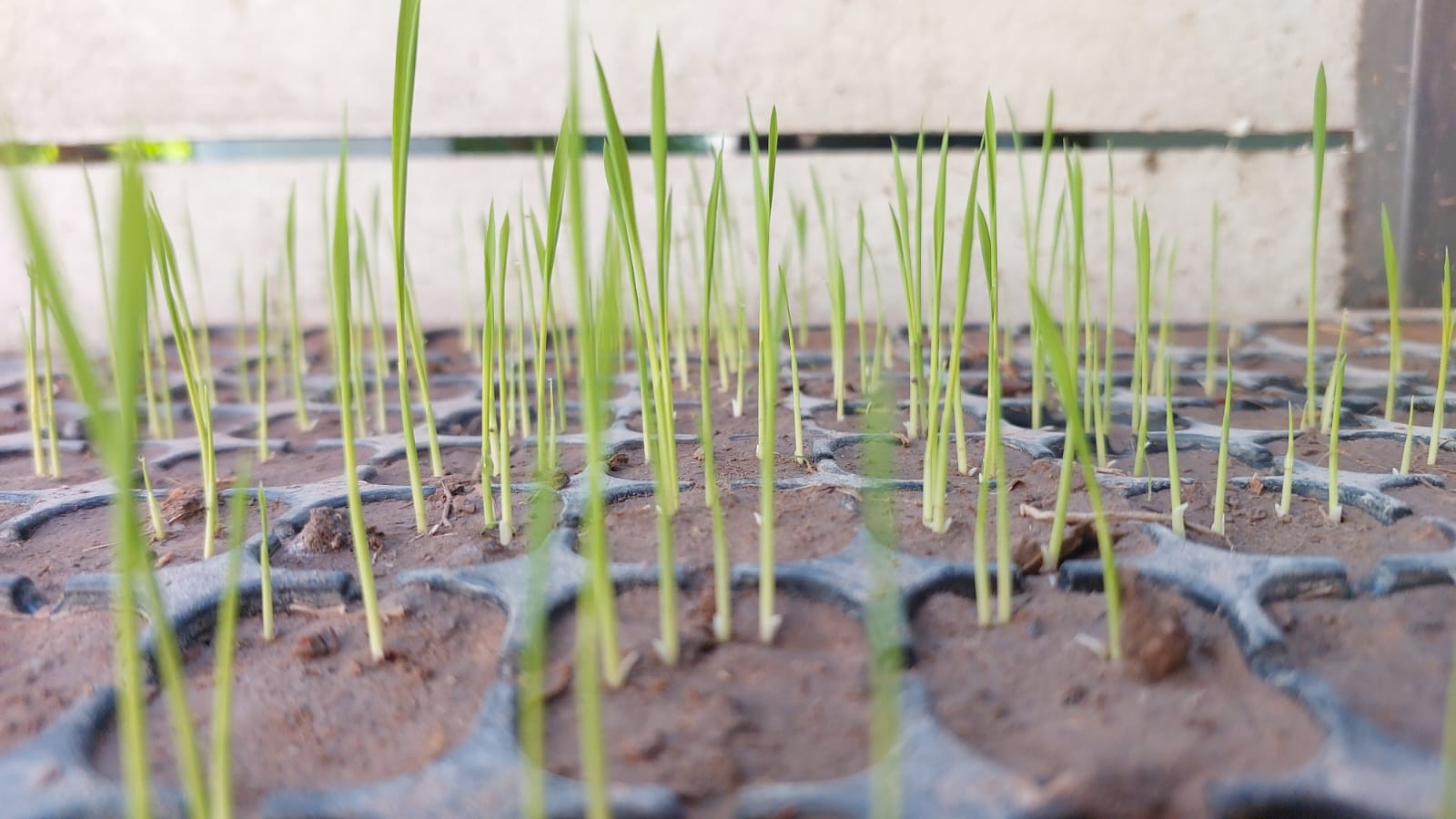Jean-Charles Maillard, CIRAD Regional Director for Continental South
East Asia on behalf of Dr. Marion Guillou, President of Agreenium. Dr.
Maillard visited AIT at its Bangkok Office on 16 March 2012, and was
joined by Dr. Philippe Girard, the new CIRAD Representative for
Thailand. He said the research laboratories are located at
CIRAD, INRA, Agro Paris Tech, Agro Campus Ouest, Supagro Montpellier,
and INP Toulouse.
Meeting with President Irandoust and Mr. Olivier Drean, Interim Head of
External Relations and Communications Office and Advisor to the
Administration, the CIRAD officials reported that a number of
laboratories within its consortium in France would soon send letters of
acceptance to identified AIT students who are still available and
willing to be temporarily housed in various labs of the Agreenium
network.The offer does not cover travel or other expenses, he
said.
AIT was flooded on 21 October 2011 under two meters of water, and
suffered considerable damage to all ground level facilities, with
almost 50 per cent of its infrastructure for education and research
destroyed, including a number of laboratories.
Extending his sincere thanks to CIRAD and Agreenium on behalf of AIT,
President Irandoust said it was a very good opportunity for AIT
students in need of lab facilities, and as much as possible the
administration would try to find the resources to assist their overall
studies in France.
Noting AIT’s advantages as an international organization of higher
learning with connection to the whole region, Dr. Maillard told the
president to “be sure of the strong interest of CIRAD for this
initiative and for working with AIT.”
He added that the students to be offered lab facilities hailed from
countries outside of CIRAD’s traditional areas of engagement, such as
Afghanistan. “AIT is very important for us due to its regional impact
that goes beyond bilateral relationships,” he said.








